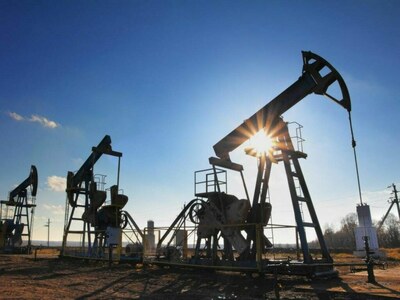OPEC+ May Accelerate Oil Output Increase
ST PETERSBURG, Russia: The OPEC+ group, comprising major global oil producers, might expedite its planned output increases by approximately one year, according to Igor Sechin, the Chief Executive Officer of Rosneft, Russia’s largest oil producer. He made these remarks on Saturday.
Sechin also commented that OPEC+’s decision to accelerate output growth appears prescient and well-founded, particularly in light of the existing tensions between Iran and Israel.
In April, the Organization of the Petroleum Exporting Countries and its allies, with Russia at the forefront, surprised oil markets by consenting to a more substantial output increase for May than initially anticipated. This agreement was reached despite concerns over weak prices and diminishing demand.
Since then, OPEC+ has opted to proceed with output hikes that surpass prior targets.
“The production increase declared since May this year is triple the alliance’s original plan. Furthermore, the total increase in OPEC+ production could be advanced by a year,” Sechin stated, without providing further details.
“The choice made by OPEC leaders to aggressively ramp up production seems highly forward-thinking today. From a market perspective, it is justified when considering the interests of consumers amid the ambiguity surrounding the extent of the Iran-Israel conflict,” he added.
OPEC+ crude output accounts for roughly 41% of global oil production. The group’s primary goal is to manage the supply of oil to the international market.
After several years of limiting production, eight OPEC+ nations implemented a modest output increase in April, subsequently tripling it for May, June, and now July.
In addition to the 2.2 million bpd cut that these eight members began to roll back in April, OPEC+ maintains two other layers of cuts that are expected to remain in effect until the close of 2026.
Oil prices initially decreased following OPEC+’s decision to raise oil production. However, the recent aerial conflict between Israel and Iran has been the prevailing factor in pushing prices back to around $75 per barrel, a level not seen since the beginning of the year.
Speaking at the St. Petersburg International Economic Forum, Sechin, a longtime associate of Russian President Vladimir Putin, also indicated that a long-term oil glut is unlikely despite the production increase, citing low inventory levels. He cautioned, however, that the growing adoption of electric vehicles in China could negatively impact oil demand.
Putin stated on Friday that he concurred with OPEC’s assessment that oil demand would remain robust. He also noted that the conflict between Iran and Israel had not caused a significant rise in oil prices, and there was no need for OPEC+ to intervene in oil markets.
Sechin further mentioned that Rosneft had already budgeted for an oil price of $45 per barrel for the current year, which is the level the European Union is considering as the new price cap on Russian oil imports, currently set at $60.



Comments (0)
No comments yet. Be the first to comment!
Leave a Comment